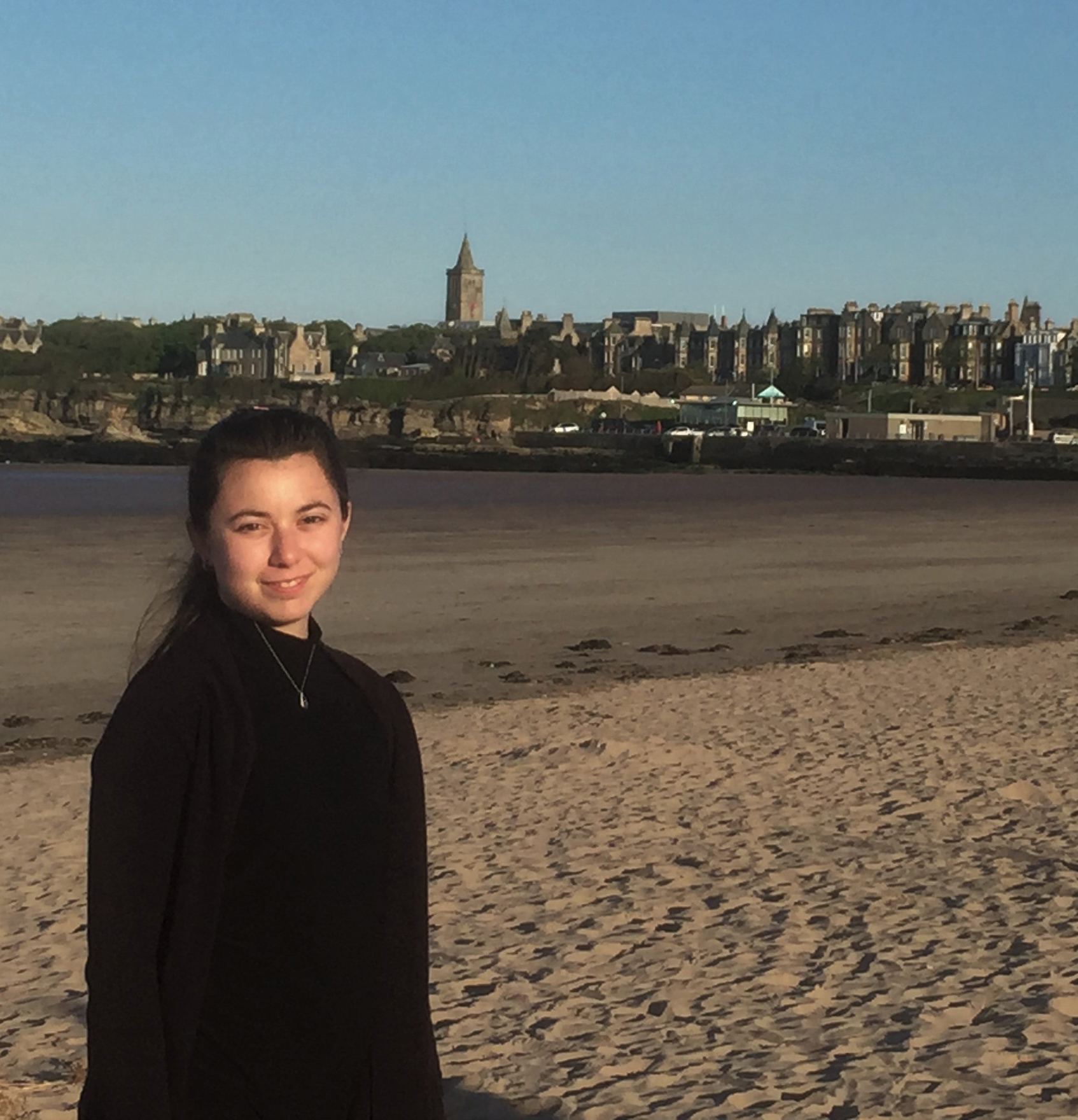History in the making
As an undergraduate, Abigail Hartman ’17 wasn’t even allowed to apply for, much less participate in, the 2016 Sixteenth Century Society & Conference, an annual symposium where the world’s foremost experts on the early modern era converge to share their research.
But Furman Professor of History Tim Fehler knew somebody. More importantly, he knew the quality of Hartman’s paper.
“I said, ‘how about I send you her article? Just take a look and tell me it’s not better than what many faculty are doing.’” Fehler remembers. “She got accepted.”
And just like that, Hartman found herself alongside Fehler inside the Provinciaal Hof (Provincial Palace) in Bruges, Belgium, preparing to present “These Troublesome and Distracted Times: Prodigies, Prognostication and Christian Astrology During the English Revolution.” About 900 people would share their work during the massive three-day conference, and exactly one of them was an undergraduate college student: Hartman.
It was a remarkable accomplishment. It was also remarkably nerve-racking, exacerbated by the towering Provinciaal Hof, which even visitbruges.eu describes as “imposing.”

Abigail Hartman ’17 stands in front of the St. Andrews, Scotland, skyline, where she is pursuing her Ph.D. in late medieval history at the University of St. Andrews.
“If it could possibly be any more intimidating being the only undergrad, that building made it so,” Hartman said with a laugh. “It was definitely a formative experience being able to see all these established academics, getting to analyze their papers and hear the research that was going on, but there’s always going to be imposter syndrome. And even with an experience like that it’s difficult to shake the feeling that ‘I don’t belong here,’ which is when you really need someone like Dr. Fehler along.”
Hartman spoke from the University of St. Andrews in St. Andrews, Scotland, where she’s well on her way to becoming one of those established academics as she works on her Ph.D. in late medieval history. Then again, a persuasive argument could be made the Greenville native is already an established academic after the December publication of “Signs and Wonders in Britain’s Age of Revolution: A Sourcebook,” which she co-authored with Fehler.
The book pulled together a variety of obscure primary sources, with a unique focus on supernatural tales like fantastical battles in the sky and witches that were commonly shared as fact at the time but often excluded today from historical texts describing events from the period. “Signs and Wonders” was the culmination of two summers of research by Hartman under Fehler, the first funded by South Carolina Independent Colleges and Universities and the second by The Furman Advantage, with the bulk of the writing taking place during Hartman’s senior year.
“The best parts are written by her, actually. She’s a much better writer than I am,” Fehler, who is already using the sourcebook in his classes, said.
This wasn’t the outcome Fehler expected when he saw promise in Hartman as a freshman and asked if she’d be interested in far less ambitious research exploring whether or not it would be realistic to write a better sourcebook than the one he was using. Eventually.
“I really was not expecting anything … beyond being able to lay the groundwork for a future project,” he said. “By the end of the summer she had helped me frame a sourcebook project.”
“Starting out in 2014, it was very big and nebulous, and I was just helping do a little bit of research into a database for something that might help some classes. From the beginning, Dr. Fehler said something about a sourcebook, but I didn’t pay attention to that honestly,” Hartman said. “It seemed too good to be true.”
But Hartman’s passion for history couldn’t be contained.
“A lot of times when I get onto a research project and I spend time with it, I start to get obsessed. In this one, the subject matter is just totally fascinating to me,” she said. “They’re things I had never really considered before. It was something I didn’t want to let go, I guess.”
Hartman came into Furman intent on participating in undergraduate research, and finding a mentor in Fehler made the experience as fulfilling as she could have imagined.
“One of the wonderful things about Dr. Fehler is he is always available. It’s kind of a joke among college students that you agonize over an email to your professor, and you get a one-line response. That is not Dr. Fehler. You email him and you get a tome back,” she said. “In my research, he put a whole lot of faith in me that I didn’t necessarily have in myself at the beginning.”
That opportunity to chart her own course while knowing Fehler would never allow her to get lost led Hartman, who unsurprisingly majored in history, to the realization she wanted to be a college professor herself one day.
“Starting out the research process was quite scary. I thought I wanted more intervention than he gave, but in the end that was what was needed. I needed to be allowed to figure things out instead of being spoon fed,” she said. “I always really appreciated that he allowed me to make the project my own. I wasn’t just a guinea pig for his research ideas … If you have the opportunity to do undergraduate research, take it. It really puts you ahead of your peers.”
Learn more about the Furman history department here.